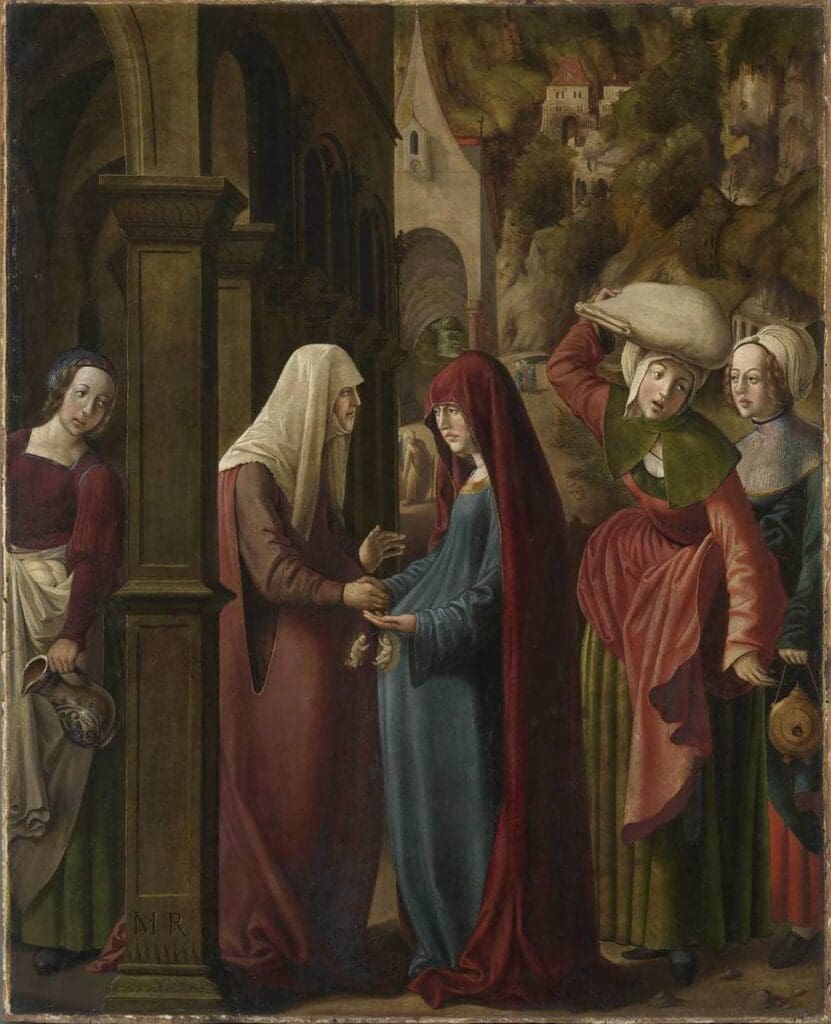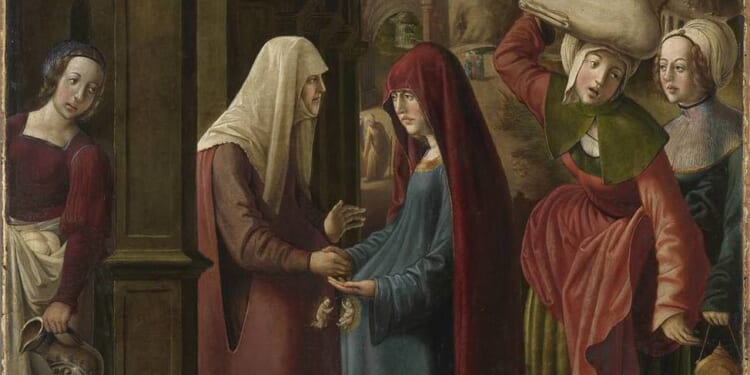People often ask me what they can do – or what should we all be doing – to deal with the many challenges we face, not only the obvious ones like wars, injustices, poverty, and so forth, but fundamental questions about what human life is and what our lives mean. There’s no simple answer because the world is complicated, as is every human life. And that’s not a bad thing. It’s how God has chosen to arrange things for us.
There’s a famous passage in Tolkien’s Lord of the Rings, where Frodo laments that the Ring ever came to him and that the fellowship has been called upon to destroy it:
“I wish it need not have happened in my time,” said Frodo.
“So do I,” said Gandalf, “and so do all who live to see such times. But that is not for them to decide. All we have to decide is what to do with the time that is given us.”
There’s no simple answer, but there’s an easy one, easy to understand anyway, if sometimes hard to put into practice. Then again, no one ever said living a Christian life would be easy.
I believe the first answer for all of us is to recognize that there will be – and need to be – innumerable initiatives of various kinds to respond to our situation. And given how things are these days, we shouldn’t expect the government, the Vatican, the hierarchy, or other large entities to start them. Aid for Women was founded right after Roe v. Wade. A lay initiative like this is not only a very Catholic thing, it’s a very American thing. We see something that needs to be done, and roll up our sleeves.
There are at least two large categories of such initiatives, one a ministry of action, and the other is like it, a ministry of truth. We need to work at both as much as the gifts God has given us allow.
Here’s St. Paul to the Ephesians:
But to each one of us grace has been given as Christ apportioned it. . . .Christ himself gave the apostles, the prophets, the evangelists, the pastors and teachers, to equip his people for works of service, so that the body of Christ may be built up until we all reach unity in the faith and in the knowledge of the Son of God and become mature, attaining to the whole measure of the fullness of Christ.
That wasn’t just intended for back then. It’s the life-giving truth now, if also a daunting task.
One way of viewing all that, however, is that God has a high opinion of us, higher than we have of ourselves. HE believes we can do things that WE don’t believe we can. (And in truth, a life without significant challenges would be a boring life.) So even as we feel the immense gap between what we can do and what we think needs to be done, we can also recognize that we’re in training for something we can’t really imagine. The kind of perfect peace, illumination, love that God originally intended for us.
C.S. Lewis called this the “weight of glory,” a great phrase that reminds us that we are going to be weighed down by challenges so that we can rise up – a typical paradox of Christianity.Lewis describes this as “a load so heavy that only humility can carry it, and the backs of the proud will be broken.”
What we’re faced with today is the re-conversion of our whole society, something like how the early Christians converted the Roman Empire. We know that Christians practiced conspicuous charity, caring for the elderly, the sick, the poor, the marginalized, those in prison, babies no one wanted. Many came to Christianity because of those corporal works of mercy and love. You are continuing that tradition.
But there were other factors. One I think especially important for us to recall is that as a result of these Christian ministries more Christians simply were born and survived – they weren’t aborted or exposed or allowed to perish.
The original Hippocratic Oath, taken by all doctors until recently, contained among other precepts:
I will do no harm or injustice to them. Neither will I administer a poison to anybody when asked to do so, nor will I suggest such a course. Similarly I will not give to a woman a pessary to cause abortion.
“Do no harm” is still something that physicians claim to believe in. But what constitutes “harm” has been redefined. Lots of modern physicians and ethicists have come to believe, for instance, that a patient asking for poison – “assisted suicide” or “aid in dying” or whatever euphemism you may want to use for it – ought to be given such treatment as a right. The culture of death has reversed the original meaning of “do no harm” in accord with its own dark spirit.

The original Hippocratic Oath has been altered: now it allows doctors to abort without scruple and prescribe poisons to those who want them. But it’s not humane to kill someone, even to kill someone who wants to be killed. There are other, truly humane ways to help people in desperate circumstances, aren’t there? As the late Pope Francis used to say, abortion is like hiring a hitman to solve a problem.
This organization is bearing a different witness. A day will come – you and many other people engaged in this struggle will help bring it to pass – when the whole madness of the sexual revolution including abortion and our pitiable gender wars will be seen for what they were, a radical detour from truth and humanity.
It’s interesting that Elon Musk has identified and spoken out about something that should be obvious: namely, that our contracepting, aborting, baby-fearing, population-controlling culture has brought us to the point where not overpopulation, but population decline threatens all the developed nations. So far as I know, Musk has not yet connected the crisis to the ideology of contraception and casual, reproductive-free sex, and to the at least 60 million Americans missing who were aborted since Roe v. Wade, and the countless tens of millions more owing to the spread of an anti-natalist ideology around the world.
I don’t wish to get into the recent murder of Charlie Kirk this evening. But he was almost alone in our culture, especially among those who speak to young people, in saying: get married, have children, raise a family, take responsibility – normalcy for men and women for the entirety of human history, except in recent decades.
Sociology is not an exact science, and we should treat social surveys with caution, but all recent attempts to measure happiness among various sectors of society find that married people with children are the happiest, and the happiest of the happy are married women with children. You can put on a red dress and white hood in protest because you’ve read The Handmaid’s Tale, but the true story is quite the opposite – a lesson we’re slowly re-learning.
So, when we step out in the public square to engage these vital issues, it should be in great confidence that the case for marriage, for family, for life, for helping every woman who finds herself with a problematic pregnancy, rests on solid ground. It’s the truth, and as someone once said, the truth will set you free.
Which brings me to another subject: Martyrdom. Now, to us, heirs to the tradition of the martyrs, peacefully dying or a willingness to be persecuted for the faith isn’t as shocking as it was for the ancients. In that culture, it was thought that only the rarest of philosophers – a Socrates or a Seneca – were able to face death with equanimity. In fact, much of ancient philosophy was not an abstract exercise, as it often is in university philosophy departments today. It was a way of preparing for death. And yet the Christians – often poor, simple, ordinary folk – were able to do before roaring crowds in places like the Colosseum, what great philosophers could not.
Here, too, is a lesson for us in what we need to do. Christians are not being martyred – not yet – in North America. But as I describe in the last chapter of my most recent book The Martyrs of the New Millennium, we’re headed in that direction. Because as we all know, you can lose a job, be cancelled online, be accused of purveying “hate,” against women, LGBTs, or gender-confused children, or of ignoring “the Science” out of obsession with outmoded (i.e., Christian) ethics.
But we must persist.
And sad to say, the institutional Church will probably not help you very much. I don’t see how, for instance, a Church leader like Cardinal Cupich here in Chicago can honor an abortion promoter like Senator Durbin. As some have argued, if Durbin had consistently opposed abortion in office, but was only “personally opposed” to guards shooting people trying to cross the border, we know he would never receive a “lifetime achievement” award.
Bishop Paprocki and Archbishop Cordileone and a very small handful of other bishops have been courageous in objecting publicly, almost white martyrs in my estimation – people who court danger for the faith without being actually killed, though who knows these days?
So must we all. I began by saying, along with St. Paul, that we all have been given different gifts by God. And He intends us to use them in the concrete circumstances of our lives. I wish I could give you a simple formula for what that means, but it’s the adventure of each of our lives to figure that out.
God put us – each and every one of us – in these circumstances for a reason. Not to lash out wildly against evil. Not to believe that we are all good and the others all bad. But to do our own part, whatever that may be, in repairing the torn net of his love and in caring for all people, especially the most vulnerable. It’s a high calling. Be aware of it. Embrace it. In His grace, strive to be worthy of it.











